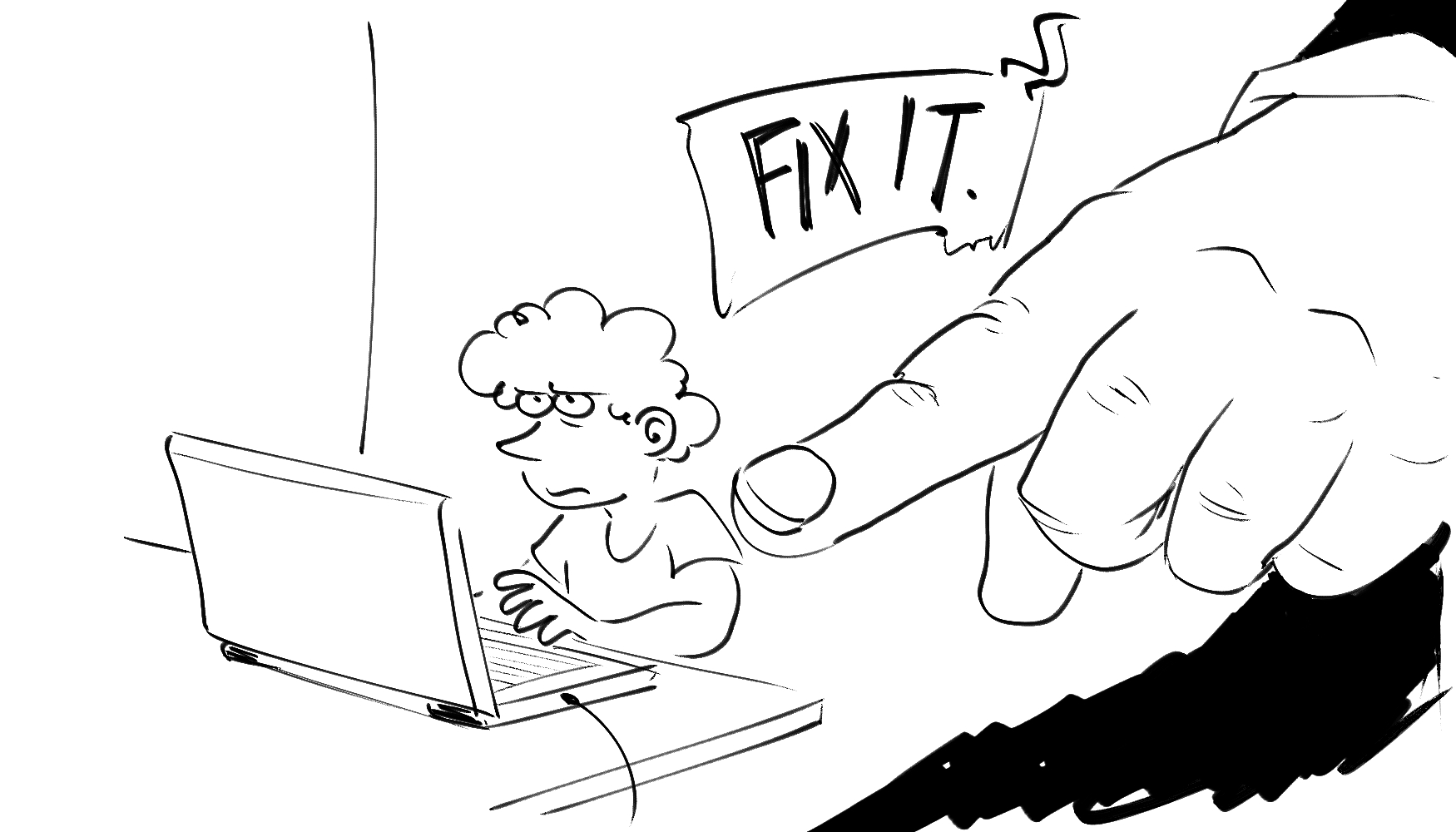Bossy colleagues who act like supervisors
by JAMES CASON
Deputy Editor
Have you ever worked with a colleague who has frequently made demands or given you directives, as though they were your boss? How about a problematic classmate who annoyingly takes control when working on group projects? Many individuals dread facing such an obnoxious person or a highly irritating situation like this in the workplace. During my previous career in media research, I experienced challenging work situations involving power struggles amongst co-workers who regularly overstepped their boundaries in delegating responsibilities, becoming “the boss” when they weren’t. Later, learning how to work with the before-mentioned individuals helped me become a better supervisor and manager when managing similar situations with my employees.
Let’s explore what this is, why it happens, and what you can do to overcome it.
So, what is a bossy co-worker? Business News Daily writer Skye Schooley says, “a bossy co-worker is someone who generally dictates the room, whether intentionally or unintentionally, and shares their opinion as fact.” Their behavior may consist of telling you what to do, critiquing you on how to do your job, or even monopolizing brainstorm sessions. So, what drives some people to be bossier than others? Is it that no one has ever addressed these individuals about their behavior and how it has made others feel uncomfortable?
What might the underlying concerns be for bossiness? Brittney Saline, a mental health wellness contributor with Talkspace, says, “insecurity, high-functioning anxiety, low self-esteem, and OCD are a few explanations for controlling behavior that may explain why a person wants to maintain control over a situation or someone else.” Or could it be possible that an employee inadvertently opens Pandora’s box by initiating an act of kindness to help a teammate, which then triggers the behavior and results in an unwarranted expectation over time? Marketing manager Rohia Shaik says, “bossy people usually target introverts and people who would not talk back to them.”
Regardless of the innumerable reasons, dealing with this type of rude behavior can be vexing, especially if the overly bearing person is around to stay. No employee deserves to be subjected to such treatment from a coequal partner in the workplace. Fortunately, bossiness can be remedied by taking a few extra recommended steps.
10 Steps to deal with a bossy co-worker:
- Set clear and healthy boundaries
- Focus on self-control while leading by example
- Acknowledge your co-worker’s presence
- Listen critically before responding
- Be firm and direct when declining their inappropriate demands
- Respond with kind words that still spell out N-O
- Stick to “I” statements
- Pay attention to your nonverbal communication
- Wait for a change
- Enlist the help of a supervisor, manager, or human resources
As you prepare to move forward in facing this awkward exchange, realize that this process will strengthen your communication skills and make you a better employee. Liz Ryan, a former Fortune 500 Human Resources Senior VP, says to “Take deep breaths and tell yourself, ‘This is how I learn.’”
Setting clear, healthy boundaries with your co-workers is the way to go. Lolly Daskal, founder of Lead from Within, says, “Don’t react to attempts at bossiness but learn to respond by asserting your boundaries, so people know not to cross them.” What example are you setting by your behavior? Lead by it while recognizing you cannot control your colleague but have complete control of yourself. Model the way you would want to be treated, whether it’s maintaining your calm composure, being assertive yet respectful, or setting healthy boundaries.
The next time your bossy co-worker approaches you about a task, acknowledge their presence while listening critically to hear what they are asking of you before responding. Schooley says, “when it is made clear that the request is outside your jurisdiction, decline their demand, be firm and direct, and be prepared to respond to them with kind words that still spell out N-O.” She suggests, “Instead of saying, ‘that’s not my job,’ say, ‘That’s an interesting project. I’m not sure it’s realistic given my workload.’”
Another helpful tip is to let your co-worker know how their behavior affects you without playing the blame game. Stick to “I” statements, avoid “you” statements, and let them know you want the behavior to stop. Try to remain conscious of your nonverbal communication (engaged facial expressions, direct eye contact) when dialoguing with your colleague to minimize the possibility of being perceived as an attacker when responding to them.
Your next step is a crucial one. It’s waiting time. After you have stated your claim and have made it clear that you would like the communication to change regarding the improper behavior displayed, wait to see if your co-worker abides by your more than fair request. If the behavior still doesn’t change, it is probably time to involve the higher authorities at your workplace. Daskal suggests enlisting the help of your supervisor or a human resources manager if your colleague’s behavior is interfering with your work. “Ask other co-workers who are frustrated with the control freak to support you if your manager resists taking action,” she says.
While these suggested steps are not guaranteed to work with every bossy employee or classmate you will ever encounter, they are solid steps in the right direction of navigating a productive and successful career in the professional world. As a people manager for several years, I have learned that healthy communication is vital to maintaining a fair and thriving workplace. There are many communication goals to consider while working with others. At the top of my list are five goals: honest and diplomatic communication, critical listening skills, empathy, the ability to face yourself as well as difficult situations, and the powerful ability to say NO, respectfully, when necessary.




